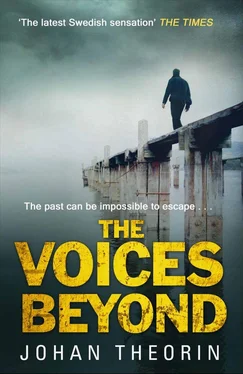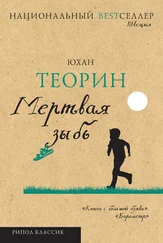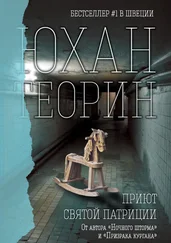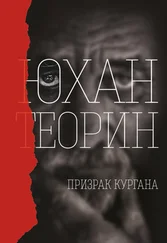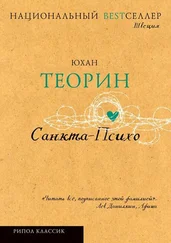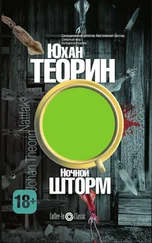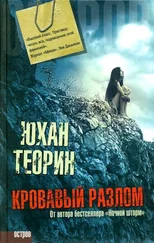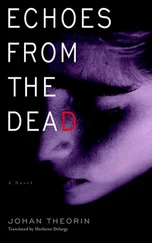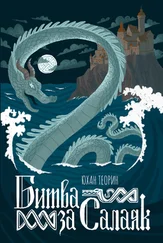Lisa stared at her. ‘Who are you?’
‘I don’t come from Lithuania,’ Paulina said, still watching the car. ‘I’m from Russia.’
The dark-blue Ford stopped beside them, the engine still running. Paulina turned to Lisa and took her trembling hand. ‘It’s time to leave Öland,’ she said. ‘Go home, Lisa.’
Then she walked away. Lisa watched as Paulina covered the short distance to the coast road. The driver of the Ford had reached over and opened the passenger door.
Paulina got in.
Lisa could see by the interior light that the old man was sitting at the wheel. Aron Fredh. He smiled wearily at Paulina as she sat down beside him and gently stroked his cheek.
The car swung across the coast road. It drove past the restaurant and disappeared into the night.
Lisa was left alone by the campsite, where people had begun to emerge from their tents and caravans to gaze up at the damaged ridge to the south, murmuring to each other in their confusion.
She opened her right hand; Paulina had given her something as she was leaving. It was a thick roll of notes. Swedish banknotes.
She closed her hand around it and thought about Silas, her father. Silas would want this money. Silas needed this money. And that need would never end.
But she was tired of giving her father money to feed his drug habit.
She slipped the roll of notes into her pocket and set off. Slowly at first, then faster. She went to her caravan and packed up her clothes, her records and her guitar, then she did what Paulina had told her to do — left the island. She wanted to get home before the police turned up.
Aron stopped the car on the way to the main road, and he and Paulina changed places. He looked back, down towards the inlet.
Everything was in darkness. His head was pounding after the explosion, but at least his hearing seemed to be intact.
‘The cairn the Kloss family built is gone now,’ he said in Russian. ‘And their home and their boathouse. All gone... We’ve done what we came to do.’
Paulina looked at him. ‘I thought you were dead, Papa. You were so close to the bunker, and I...’
‘I always survive,’ Aron said tersely.
Paulina nodded. ‘And what about him?’
‘Him’, that was all she said. Aron had managed to meet up with his daughter in secret a few times over the summer, but Paulina had never mentioned Kent or Veronica Kloss by name.
‘He’s gone,’ Aron said.
‘But she survived,’ Paulina said. ‘She was down in the launch, waiting for him to bring down your body. He was going to shoot you... that’s what they’d planned.’
‘She survived? Veronica Kloss?’
‘Yes. I heard the engine afterwards... the boat was moving away.’
She started the car and set off. Not south towards the mainland, but north, where there was no bridge. Towards the furthest point of the island.
They didn’t meet any other cars, and when the road narrowed and the pine forest began Paulina turned on to a dirt track leading through the trees and switched off the headlights. It was almost two o’clock. Aron was exhausted, and every bone in his body was aching.
Paulina had cleared out her caravan and put her bags in the back seat earlier that evening. She opened one, took out two blankets and reclined the seats. They settled down in the darkness, and silence fell inside the car.
‘We couldn’t let the children come to any harm,’ Paulina said after a while. ‘You do understand that, don’t you, Papa?’
Aron didn’t respond at first. It had been his daughter’s idea to remove the boys from Villa Kloss before the cairn was blown up. She had crept in and placed cloths soaked in chloroform over their faces once they had fallen asleep, and she had given Aron the alarm code.
‘I know,’ he said eventually.
The children, he thought. As Vlad, he had harmed many young people in the thirties. Eighteen-year-olds, seventeen-year-olds, perhaps even younger. He had interrogated them, beaten them, sent them off to the camps without turning a hair. Or he had made them orphans.
‘What did you do with them?’ Paulina asked.
‘Who?’
‘The Kloss children.’
Aron closed his eyes and lay back. ‘I took them across the island and locked them in a boathouse.’
Paulina nodded. ‘We’ll phone someone in the morning and let them know,’ she said, then added, ‘My friend made it, too.’
‘What friend?’
‘Her name is Lisa.’
Silence fell once more; the forest was peaceful. After a few minutes, Aron could hear his daughter’s calm, even breathing, but he couldn’t get to sleep himself; his body was still throbbing and aching.
He must have dropped off eventually, because the sun was in his face when he opened his eyes, its rays shining between the tree trunks. Another glorious summer’s day. Paulina shifted slightly beside him, but she was still asleep.
Aron blinked in the bright light, surprised that he had woken up. Slowly, he began to unbutton his shirt.
Before long, his daughter woke behind the wheel. They exchanged a few quiet words, then she started the car and they continued their journey north across the island.
In Byxelkrok, they saw the sea again, and stopped at the harbour hotel for a cup of coffee. The waitress barely glanced at them.
The police might well be looking for them in the south; there might be patrol cars all over Borgholm; they might even have closed the bridge — but here in the north, no one was interested in them.
There was a telephone kiosk down by the harbour in Byxelkrok; Paulina drove up to it and looked at her father. ‘Are you going to call her now, Papa, and tell her where the children are?’
Aron nodded and got out of the car. He ambled over to the kiosk, picked up the receiver and held it to his ear, but he didn’t make the call.
Instead, he turned his back on Paulina and opened his jacket with his free hand. There was a small tear in the fabric, stained dark red, but the wound was no longer bleeding. Not much, anyway.
It had taken several hours after the explosion for him to realize what had happened, but when he woke at dawn Aron had known that the throbbing in his belly wasn’t normal. Silently, in order to avoid waking his daughter, he had unbuttoned his shirt and discovered a small, narrow wound in his right side.
Kent Kloss hadn’t missed with his first shot after all.
He had a first-aid box in the car, and had dressed the wound with adhesive tape and a clean bandage to stop the bleeding, but his guts were hurting, and when he pressed with his fingers he could feel a piece of lead inside him.
Aron had been shot, for the first time in his life. It was almost funny, but he had to keep it to himself.
Paulina mustn’t find out.
He put down the phone and slowly made his way back to the car. ‘All done,’ he said.
Paulina started the car and they continued northwards, heading for the last outpost: the harbour in Nabbelund and the ferry to Gotland.
‘What did you do with the guns?’ she asked.
Aron jerked his head towards a bag on the back seat. It had been filled with sticks of dynamite earlier on, but now it was almost empty.
‘They’re in there,’ he said. ‘I’ll drop them over the side once we’re far enough out.’
The Grankulla Bay inlet was surrounded by spits of land and low islets covered in dense forest, almost like a lagoon. Laange Erik, the tall white lighthouse, warned ships of shallow waters off the northern tip of the island.
Fortunately, the ferry to Gotland had made its way safely to the quayside and was ready for departure. Aron and Paulina left the old Ford in the car park and walked along the jetty. Aron felt the wind coming off the Baltic on his face. They went aboard; Paulina had booked their tickets all the way home. The ferry would take them to Visby; from there, it was a short flight to Stockholm, then on to Moscow.
Читать дальше
